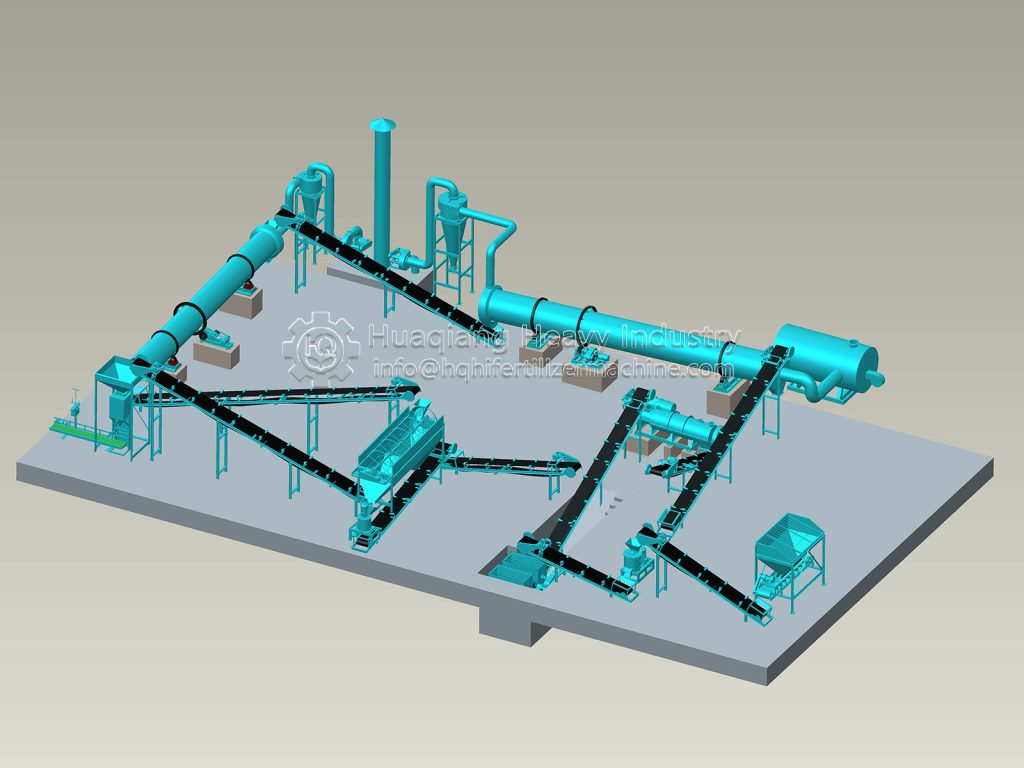Bio-Organic Fertilizer production line equipment must cope with the corrosive and sticky nature of mature materials. Scientific maintenance is key to avoiding malfunctions and ensuring product quality. The following summarizes key maintenance points from three perspectives: core equipment maintenance, general maintenance principles, and special precautions.

Core equipment maintenance requires precise implementation. Check the wear of the turning teeth of the fermentation turning machine weekly. Replace any wear exceeding 5mm to prevent uneven turning. Clean the reducer oil and replace the lithium-based grease monthly to prevent damage from high temperatures. Clean residual material from the crushing machine after each shutdown to prevent caking and blockage. Check the hammer gap quarterly to maintain a 1-2mm gap to ensure a consistent particle size. Disc granulators require daily cleaning with soft tools. Bearing grease should be replaced monthly. Liner wear should be inspected annually and replaced if the thickness decreases by 1/3. Clean dust from the heat exchange tubes of the drying and cooling equipment weekly. Check the conveyor belt tension every six months to prevent deviation and slippage.
General maintenance principles must be adhered to throughout the entire process. Before starting up each day, check the motor voltage and current of each device to ensure normal operation. After shutting down, clean the equipment surface and remove any residual material. Tighten the bolts of transmission components monthly to prevent loosening and vibration. Quarterly, inspect equipment seals, such as the crusher feed inlet seal and the dryer door seal, and replace any damaged seals promptly to prevent dust leakage or heat loss.
Special precautions must not be overlooked. Bio-organic fertilizer materials contain microorganisms. After maintenance, equipment must be flushed with a high-pressure water jet to prevent residual material from mold and affecting subsequent production. During the rainy season, electrical cabinets must be protected from moisture, and wiring insulation must be regularly inspected to prevent short circuits. Maintenance records should also be established to record maintenance times and component replacements for each device. This data can be used to predict failures and minimize downtime losses.
In short, maintenance of bio-organic fertilizer production line equipment requires consideration of material characteristics, targeted maintenance of core equipment, adherence to general principles, and attention to specific details to ensure continuous and stable operation of the production line.